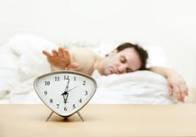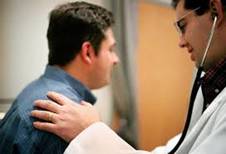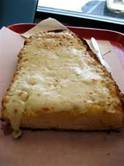
When studying a site, Self.com, I found an article by Dina Aronson, MS,RD about the connection between sleep and diabetes risk. Her non-nonsense report caught my attention:
“We've known for some time that how much sleep we get affects how we eat and how heavy we get. Now, there's solid evidence that sleep quantity is linked to diabetes risk. According to a new National Institutes of Health Study published in the Annals of Epidemiology, people who sleep fewer than six hours a night may be three times more likely to develop impaired fasting glucose (IFG), a condition that leads to pre-diabetes, diabetes, heart disease, and stroke.
“Healthy circulation, a healthy heart, and healthy cells depend on effective glucose regulation. So when this regulation is compromised, health deteriorates.

“The study is part of a larger population-based investigation of 1500 people called The Western New York Health Study. As a result of the findings, the researchers recommend that sleep be assessed as part of regular doctor visits for everyone. I completely agree; sleep quality is so important in our total health picture, and is often overlooked as a cause of poor health.”
She said researchers think the reason between sleep and disease risk is based on hormones and the nervous system.
It’s no surprise that sleep determines so much in our lives. Don’t we all behave differently when we get too little sleep? I know I do. My appetite increases, I tend to throw caution to the wind (regarding all sorts of things), and it’s so much easier to slip out of my healthy eating and exercise routine. And I also feel more stressed and less productive. All it takes is a return to my normal sleeping pattern of 7.5 to 8 hrs. per night, and life is better!

Aronson’s advice for getting more sleep is to try to hit the sack 10 minutes earlier every evening until we're getting at least 7 (preferably 8) hours of zzz's every night. She advises we try hard to make sleep a priority. What about filling in sleep gaps with a mid-day siesta? Aronson says it’s not yet clear if napping counters the Diabetes risk, or if consecutive sleep is the key. If nothing else though, a nap can't hurt and will make us feel more well-rested and centered.
With this information in mind, I went searching for foods that are sleep-inducing (besides the heavy-duty Thanksgiving dinner, I mean). First though, let’s look at foods to avoid in terms of sleep:
 Caffeinated food/beverages, three to eight hours before hitting the sack.
Caffeinated food/beverages, three to eight hours before hitting the sack. Caffeine is a mild stimulant that increases the activity of the central nervous system. Caffeine’s stimulant effect peaks in about one hour and then declines as the liver breaks it down. If you’re an occasional coffee drinker, you’ll tend to be more sensitive to the stimulant effects. So, if you go to bed by 11:00 p.m., you’ll have to stop your caffeine intake by 2:00 or 3:00 p.m. to avoid insomnia. Also, beware of some “energy” drinks, which incorporate “herbal” caffeine including guarana seeds, kola nuts, and yerba mate leaves.
 All liquids 90 minutes before going to bed.
All liquids 90 minutes before going to bed. It takes about 90 minutes for the body to process liquids, so limit liquids of any kind for at least 90 minutes prior to bedtime if the need to urinate wakes you up in the middle of the night. This problem is especially common in older men.
 Alcohol and nicotine.
Alcohol and nicotine. Do not use alcohol to help you fall asleep. Although alcohol may initially induce sleep, once it wears off, the sleep tends to be fragmented. Also, limit nicotine prior to bedtime, as it is a stimulant and will keep you up.
 Heavy meals less than three hours prior to bed.
Heavy meals less than three hours prior to bed. Meals loaded with calories and fat rev up active digestion and can often leave you feeling uncomfortably full or, even worse, cause heartburn or aggravate a hiatal hernia.
 Eat a light snack before bedtime to help produce serotonin (the calming hormone).
Eat a light snack before bedtime to help produce serotonin (the calming hormone). Try a light snack — 200 calories or less — that’s mainly carbohydrate with a touch of protein. Many scientists claim that by combining an ample dose of carbohydrate together with a small amount of protein (which contains the amino acid tryptophan) your brain produces serotonin, which is known as the “calming hormone.” And when we’re calm, we are certainly more apt to fall asleep.
And sleep-inducing foods? Let’s try this bedtime snack idea!
1 slice of whole wheat toast topped with 1 small slice of low-fat cheese
1/2 cup healthy cereal topped with 1/2 cup skim milk
1 banana with 1 teaspoon of peanut butter
1 rice cake topped with 1 tomato slice and 1 slice turkey breast
Contribute to the Cook'n Club!
DVO would love to publish your article, prose, photography and art as well as your cooking, kitchen and nutrition tips, tricks and secrets. Visit the Newsletter Submission / Win Win for All section in our Forum for more information and details.


